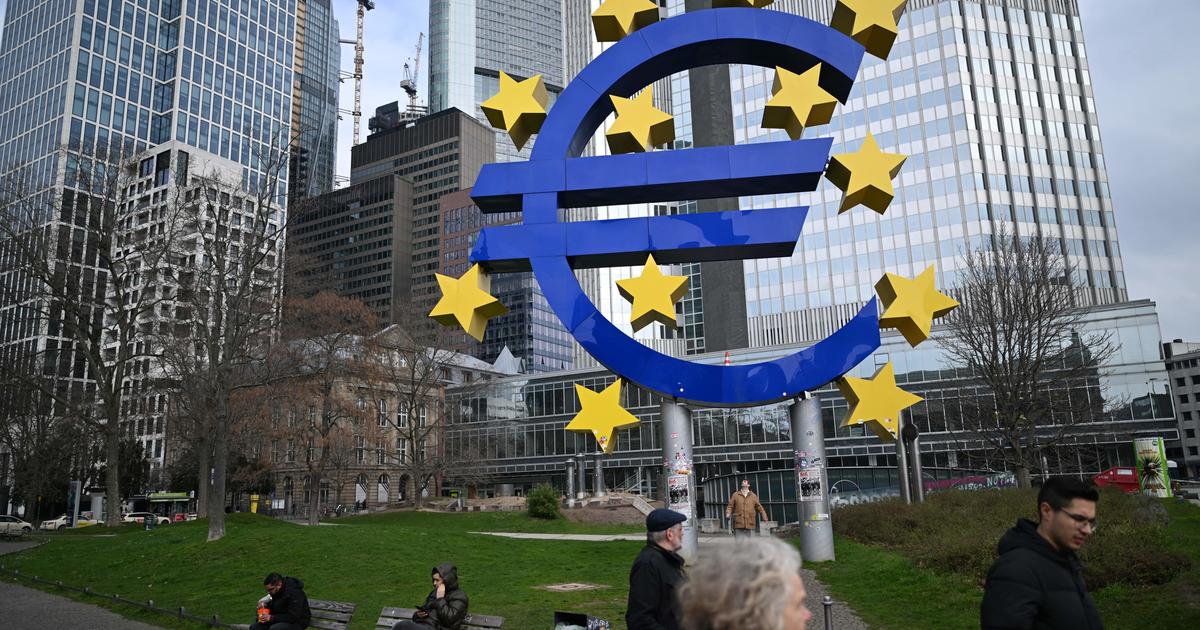The president of the European Central Bank, Christine Lagarde, has assured the leaders of the euro zone countries that the stock market punishment that financial institutions receive is not justified.
"The euro area banking sector is resilient because it has solid capital and liquidity positions," said the Frenchwoman at the euro summit held this Friday, according to community sources.
The 20 prime ministers or heads of state have taken the baton and have proclaimed in their final declaration that "the banking sector is resilient, with strong capital and liquidity positions".
Despite this show of confidence, Lagarde added that "the ECB is fully equipped to provide liquidity to the euro area financial system, if necessary."
Lagarde has been joined at the exit by the two leaders of the largest countries, France and Germany.
“The fundamentals of European banks are solid.
The euro zone is the region where the banks are strongest”, declared the French president, Emmanuel Macron, after leaving the meeting.
For his part, the German Chancellor, Olaf Scholz, has spoken specifically about the situation of Deutsche Bank, the first German bank, trying to dispel the growing doubts that exist about it in light of its stock market punishment: “It has modernized and organized.
It is a profitable bank.
There is no reason to be concerned."
Those who did not speak at the end, despite the situation in the markets, were the President of the European Council, Charles Michel, and the President of the European Commission, Ursula von der Leyen, who did not give their traditional press conference.
More information
Doubts about Deutsche Bank drag European banks to a black Friday on the stock market
"The banking sector in the euro area is strong because we have applied the internationally agreed regulatory reforms after the global financial crisis," Lagarde explained during a closed-door meeting in which the leaders had to leave out mobile phones.
"Recent events remind us how important it has been to continually improve these regulatory standards."
The stock market storm that has plagued the financial sector since the US bank Silicon Valley Bank sank two weeks ago slipped into the European Council this Friday, which was meeting on March 23 and 24.
Taking advantage of this, the countries that make up the single currency took the opportunity to celebrate what is known as the euro summit.
Upon arrival, as has been the case for the last 15 days, there were calls from several prime ministers and also from the president of the Eurogroup, Pascal Donohoe, the body that brings together the finance ministers of the euro zone, to complete the banking union, pending task since 2014 that is stuck due to the impossibility of Italy and Germany getting closer to positions on this point.
The President of the Spanish Government, Pedro Sánchez, would also have demanded it at the meeting, as he himself pointed out at the end.
And, in addition, the president of the ECB herself would have done it: "Now we have to advance in the banking union", would have been the phrase according to community sources.
But in the text of the conclusions of the meeting, it can be seen that the situation is practically stuck: "We ask that efforts continue to complete our Banking Union in line with the Eurogroup declaration of June 16, 2022."
Then the finance ministers did not reach an agreement on a work schedule to approach common deposit insurance to prevent capital flight within the monetary area states and thus worsen financial crises.
This initial intention of Donohoe was only to appeal to the Commission to present some legal adjustments in the regulation on crisis resolution in banking entities.
In addition to ending the Banking Union, Lagarde reportedly urged leaders to "keep working to create truly European capital markets."
The ultimate goal of all this would be a way to avoid or hinder episodes like those seen with Deutsche Bank.
Financial sources point out that what is happening with the large German bank and others such as Commerzbank or Société Générale responds to speculative movements favored by the lack of liquidity in the non-payment insurance market, known as CDS.
Aware of this, these industry sources point out, there are investors who first position themselves short in entities perceived as weak in the market.
Subsequently, the low liquidity of the CDS market is used to increase its price with small movements.
Once these non-payment insurances are triggered, doubts about the entity increase, the shares fall and the same investor collects the benefit of having previously positioned himself.
Follow all the information on
Economy
and
Business
on
and
, or in our
weekly newsletter
Subscribe to continue reading
Read without limits
Keep reading
I'm already a subscriber






